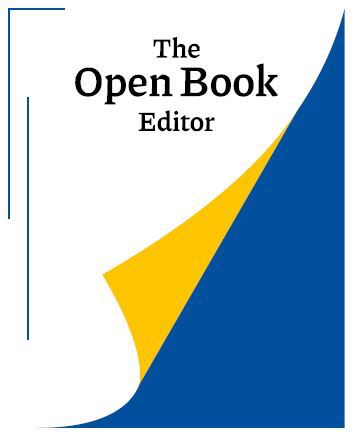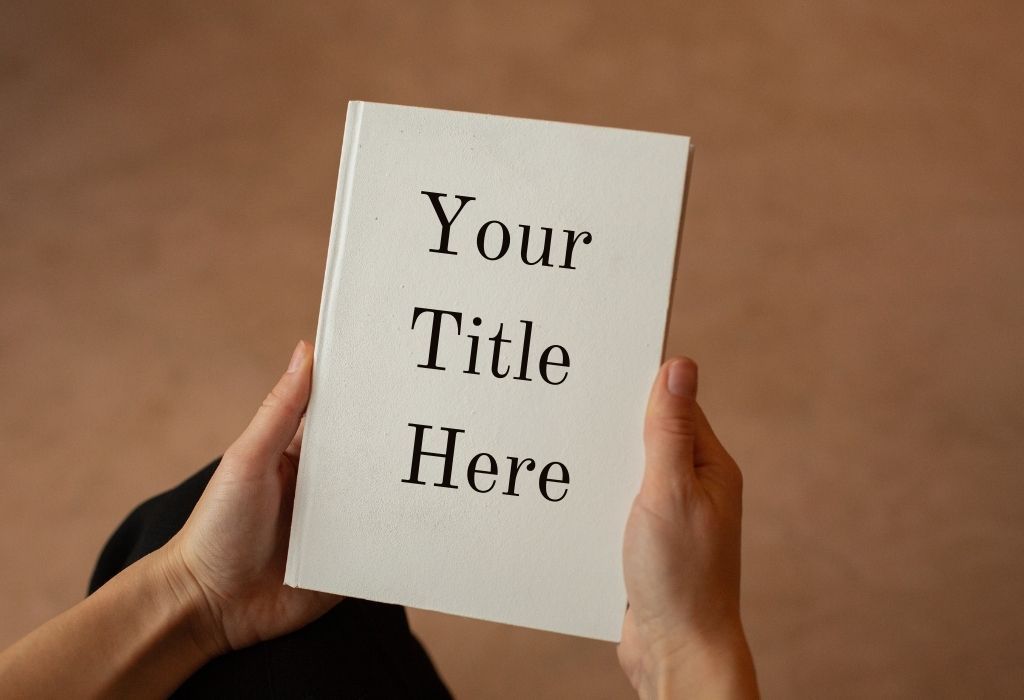After hours spent crafting believable characters, writing thousands of words, and editing your book, you’d think that coming up with a title would be an easy next step. However, penning a great title for your book could be harder than you might think! An eye-catching title on your book can make all the difference between someone passing it up or stopping to take notice—whether it be agents, publishers, or readers.
Are you struggling to figure out how to write the perfect title for your book? Read on for some great tips on how to craft a title that will capture the essence of your story and grab people’s attention.
How important is a good title for your book?
We like to claim that you shouldn’t judge a book by its cover, but the reality is that most people will decide to pick up a book based on how intriguing it is.
A great title on your book matters. A lot. It’s the most effective marketing tool you have. An eye-catching title can hook people’s attention, pull them in, and get them to read the blurb to find out more about your book.
Regardless of which type of publication you choose to pursue, the title can have a serious impact on your sales. The amount of books being published has exploded in recent years. This means that agents, publishers, and readers not only have a larger pool to choose from, but that they are more likely to make snap judgements based on things like the title of your book.
You only have a few seconds to grab someone’s attention and make them pause and pick up your book. This is why a great title is so important.
How do I make the book title unique?

With so many books out there, it probably feels almost impossible to find a unique title for your book. But not to worry, it can be done!
Consider your genre
Before you start thinking about titles, make sure you have a firm idea of the genre of your book. The genre will impact what sorts of words you use to craft a great title for your book. A fantasy will have a very different sort of title from a romance novel, for example. There is no one-size-fits-all formula for coming up with a title for your book.
Not too long
The length of the title of your book can have an impact on whether it catches people’s attention. Unless you can justify it, avoid lengthy titles of more than six words. Why? A long title can end up confusing potential readers and will make the cover and spine of your book look crowded. Visuals are just as important when marketing a book, and you don’t want someone to pass over your work because of a wordy title.
On the other hand, while short and sweet often works best, be careful with one-word titles. A one-word title can pack a punch, but only if it’s unique and attention-grabbing (think Choke by Chuck Palahniuk). With one-word titles, you also need to ensure that it’s not a word that’s going to get drowned out in unrelated results when people search for it on Google. Two to four-word titles seem to be the sweet spot, so aim for that if you can.
Avoid existing titles
Of course, as the author of your book, you need to do your due diligence and make sure there isn’t already another out there with your chosen title. Do extensive research into the title you choose for your book to make sure it isn’t already being used.
The exception to this rule again depends on the genre. If you discover that a book in the same genre or a similar genre as your book already has the title you’ve been considering, then keep brainstorming. But if the title exists on a book in a completely different genre (for example, you’ve written a thriller, but the other title is historical fiction), then it’s probably okay to use it too.
Getting started
So, now that you know why the title of your book is so important and a few of the guidelines to making it unique, it’s time to get started writing the eye-catching title! Get out a piece of paper and jot down any word that comes to mind when you think about your story. It can be places, names, feelings, or important actions that happen in your book. Now, let’s try to narrow it down with a few suggestions:
Character names
Character names can work well as book titles. Look at books like Harry Potter or The Great Gatsby; both feature the memorable names of a central character in the book. The quirky nature of the names also grabs a browser’s attention. However, you should only consider using a character name as the title for your book if it’s unique and interesting sounding. Jane Johnson doesn’t have the same pull as Eleanor Oliphant, for example.
Setting
When and where is your book set? Using the setting (or one of the settings) in your book’s title can offer some great opportunities to entice potential readers. Look at The Glass Hotel by Emily St. John Mandel. Not only does the title point to a setting in the book, but it’s a metaphor for the overall narrative as well. Meanwhile, Love in the Time of Cholera by Gabriel García Márquez tells you it takes place during a cholera outbreak while at the same time drawing you in with the suggestion of a love story.

Informative
When brainstorming a title, use it as an opportunity to give the reader an idea of what your book is about. Look at Gone Girl by Gillian Flynn. This title is a clever twist on the core premise of the book: the disappearance of a central female character. Or what about A Game of Thrones by George R.R. Martin? This title automatically suggests a thirsty battle for power—which is what the book (and, indeed, the series) is all about.
What do I avoid when creating a title for a book?
There are a few things you should avoid when writing the perfect title for your book:
- Avoid difficult to pronounce titles. You don’t want your reader to feel like your book’s title is a tongue twister.
- Avoid using foreign words on your novel’s cover too. Not all readers will know their meaning or how to pronounce them.
- Avoid embarrassing or charged titles. This means nothing that will be embarrassing for your potential reader to say out loud, or a title that seems politically skewed or will alienate certain readers (for example, swear words in your title).
- Avoid contemporary buzzwords as these eventually go out of date. You want the title of your book to feel timeless.
But don’t get too attached!
Unless you plan to self-publish, the final title of your book may not be entirely up to you. Some writers come up with a title before they start writing, become attached to it throughout the writing process, and are stunned when an agent or publisher scraps it.
So, it’s important not to get too attached and be open to changing it if an agent or publisher requests it. After all, they are there to market your book and have a vested interest in seeing it do well. Agents and publishers have industry knowledge you probably don’t, and you should be willing to trust their expertise.
Before sending your manuscript out to agents or hitting that self-publish button, brainstorm two or three potential titles. Then ask your beta readers which they prefer. This will help you to narrow down your options objectively.
And just because an agent or publisher is asking you to change your title, this doesn’t mean you have zero say. However, you may need to compromise. Agents and publishers know that your book is your baby. A healthy relationship means you can find a middle ground with your book’s title that leaves all parties happy!
Coming up with an attention-grabbing title for your book can seem daunting, so consider asking for help! At The Open Book Editor, we offer author coaching to help you with everything from outlining and brainstorming to coming up with those all-important words to put on the cover of your book. Give us a shout to find out more about how we can help ensure your book gets the attention it deserves!


